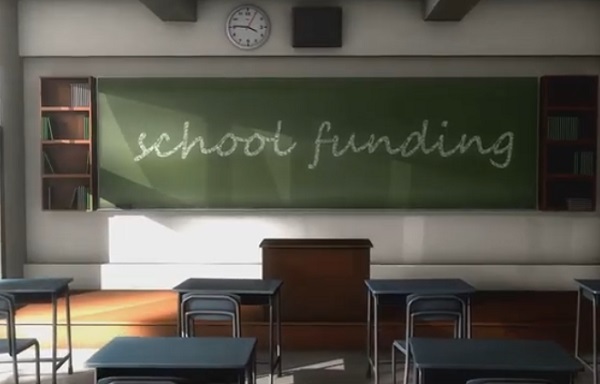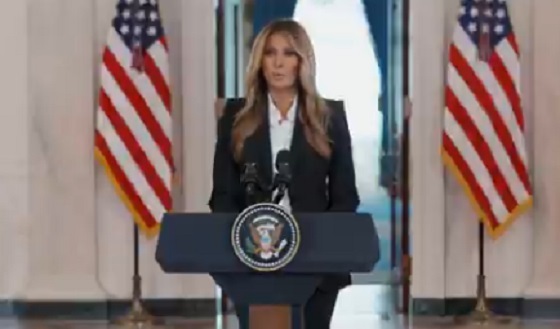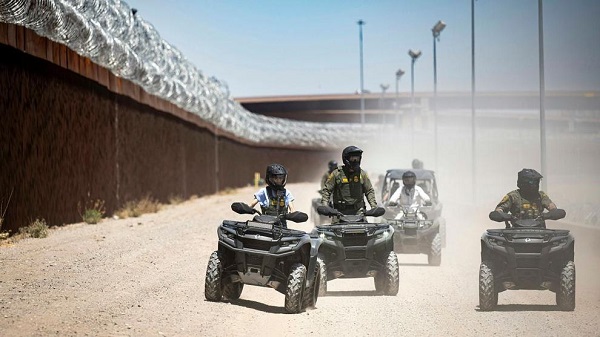International
UK election 2024: Nigel Farage could deliver another profound shock to the establishment
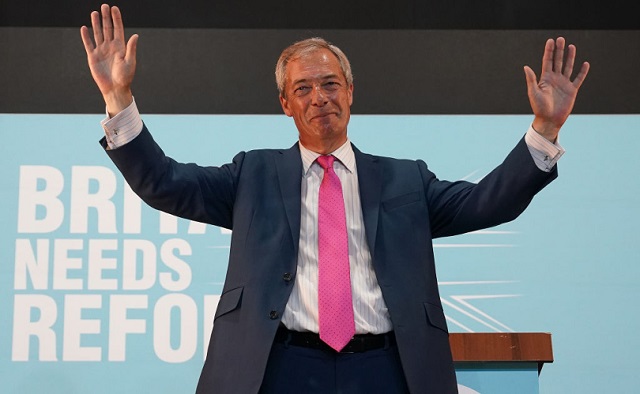
From LifeSiteNews
By Frank Wright
With Nigel Farage and Reform U.K. from the right, and George Galloway and his Workers’ Party from the left, the populist element threatens to make the cheerless pantomime of British politics entertaining – and interesting – again.
The United Kingdom’s general election is days away. Thursday, July 4, a memorable date for American home rule, may see a degree of self-rule return to Britain as the liberal establishment is shaken in its heartland by populists from the right and left of the center of permanent government.
Last week current Conservative Foreign Secretary David Cameron said on video that British policy on Ukraine was “fixed” and that nothing would change if Labour won the election – as many expect they will.
Yet a rising tide of populism led by two charismatic figures has complicated the situation.
Despite attempts routinely seen in European nations to “lock out” populists from mainstream media, Nigel Farage’s Reform continues to surge. Mass rallies across the country combine with several polls showing his party now pushing the Conservatives into third place nationally in three polls.
When the first poll showed Reform a point ahead of the Tories, Farage claimed his party was now “the real opposition to Labour.”
BREAKING
Reform UK has just overtaken the Conservatives in the polls.
We are now the real opposition to Labour.
Join me on ITV1 in 20 minutes. pic.twitter.com/jrPaf86PbM
— Nigel Farage (@Nigel_Farage) June 13, 2024
Farage has complained that his party is not being given fair media coverage. Reform have cautioned against believing mainstream media polls, as their own claim to show far stronger support – such as this from July 1.
As many former Conservative voters openly call for their party to get “zero seats,” Nigel Farage and George Galloway are rising in the polls to challenge both parties of government – widely seen by their traditional voter base as having betrayed them.
Almost all polls exclude Galloway’s Workers’ Party from their calculations, locking his voice out on screen. But it is his voice which has resonated with many who share his support of Gaza against Israel’s ongoing genocide.
Galloway claims that the established parties have “abandoned the working class.” He claims to stand against “the uniparty” of British politics, having denounced the “one-party state” of Britain in colorful terms in the past.
His recent sentiments on the merits of both the Labour and Conservative leaders will be shared by many.
“I have never seen an election in which two people who less deserve to be the Prime Minister of Britain are competing for that office.”
Workers Party of Britain leader George Galloway says voters are fed up with the main political parties. pic.twitter.com/88JotpxXcL
— Channel 4 News (@Channel4News) June 19, 2024
With Galloway from the left, and Farage from the right, the populist element threatens to make the cheerless pantomime of British politics entertaining – and interesting – again.
Farage came to prominence as a leading figure in the “Brexit” movement, which following then Prime Minister David Cameron’s decision to hold a referendum, saw the U.K. vote in it to leave the European Union.
Many British voters – known as “remainers” – sought to remain in and seek to rejoin the E.U., and hope that a vote for the Labour Party will realize this ambition.
British Christian commentator Peter Hitchens criticized the referendum at the time, saying that it introduced a conflict over sovereignty that replaced another. He said that the referendum made the popular vote sovereign at the expense of Parliament, and that the membership of the E.U. had also done the same. This, he said in 2023, had diluted the power of Parliament overall.
'Ever since the 1970s the UK has given away so much of its sovereignty, and people don't realise how little room for manoeuvre the British Government has.'
Peter Hitchens and Alex Deane discuss the UK leaving the ECHR amid the growing migrant crisis. pic.twitter.com/zTLgowelR3
— GB News (@GBNEWS) August 14, 2023
Hitchens concluded that the referendum really contested the supremacy of Parliament in determining the fate of the nation.
Election as referendum on Parliament?
This election can be seen as a sort of second referendum – on the legacy of that Parliament and how its determination to act against the nation should be judged by its population.
The Conservative Party has ruled Britain for the last 14 years. It has attacked Libya (in 2011), unleashing waves of mass migration, which saw the party then call for integration and diversity as scandals over child sexual abuse (2010-2014) and the public execution of a British soldier (2013) by immigrant populations hit the press.
The Conservatives, as with many other parties of the liberal consensus in the West, strongly supported lockdowns and burdened the nation with record borrowing to fund the destruction of the high street businesses, community groups and the education and development of children and young people. They aggressively promoted the so-called “vaccines,” with conservative commentator Andrew Neil saying it was “time to punish the unvaccinated.”
With its “winner takes all” system of “first past the post,” the party with the most votes in each constituency wins. This means Reform may take millions of votes, but still end up with very few seats.
Elections are not only a matter of who counts the votes. They are also determined by who draws the boundaries – in reality and in the media.
Mass migration breaks the game
Yet it is mass migration – and its profound effects on the politics, policing, and practices established in Britain which is mainly driving support to Farage’s Reform. Why is that the case?
It is a reality which can no longer be ruled out of bounds by the politics and media of the establishment.
Mass migration has increased significantly under the Tories, as the Conservatives are known. So have laws against free speech, including a National Security Act which threatens to criminalize investigative journalism. Nigel Farage was himself “debanked” under measures permitted by Conservative rule. The party of law and order has marked the nation by the absence of both.
READ: Press freedom under threat as UK National Security Act could put journalists in jail
Christians have been prosecuted and cautioned by police for praying, preaching the Gospel, and singing hymns. In May 2024, the Daily Telegraph reported that “Christians are the most despised minority in Britain” as a result.
The U.K. now has the highest tax burden in 70 years, and it is set to rise higher still. Taxes have risen in the U.K. more sharply than in the U.S. or the E.U. in the last five years.
For these reasons the most vociferous opponents of the Conservative Party are now its own former core voters.
This election will be lost by the Conservatives. It may finish them. But a massive Labour victory is not guaranteed, and the chaos created by Labour and the Tories in Britain is driving people towards populism to secure a meaningful change – from the politics of national suicide.
A guide for Christian voters
The U.K.’s Christian Institute has produced a guide to all the parties’ policies, showing where each faction stands on issues of concern to the near 60 percent of the population which identifies as Christian, per the most recent census in 2021.
Nigel Farage’s Reform is the only party to oppose the LGBTQI agenda in schools. Reform also supports marriage with a proposed raise in the marred couples’ tax allowance. It wishes to abolish “hate crimes,” including repressive measures on speech, and has pledged to leave the European Convention on Human Rights, which prohibits most meaningful action against mass migration.
The elephant in the room
The migration issue remains one which dominates ordinary life in Britain, but whose mention has been routinely and deliberately excluded from mainstream debate and media coverage for the decades during which it has taken place.
Nigel Farage has won one referendum – on Britain leaving the E.U. in 2016. Most polls said he would lose that one. One said “Leave” would lose by 10 points.
With the elephant of migration now dominating what little room is left in Britain, Farage may be on course to deliver another profound shock to a system designed to conduct business as usual – regardless of the interests and opinions of its people.
Focal Points
Trump Walks Back His Tomahawk Tease from Zelensky
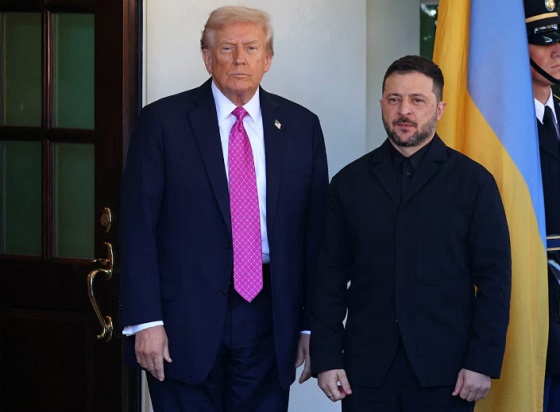
By John Leake
The President meets with the Ukrainian dictator but prudently declines to give him the long range missiles he seeks.
Yesterday, after seeing reports of Zelensky meeting with Raytheon executives before his scheduled meeting with President Trump at the White House, I wrote an essay expressing my dismay at how the President has—since he entered office eight months ago—walked back his campaign promise to end the war in Ukraine. Instead, he has recently made statements suggesting a willingness to escalate the war, most notably by giving Ukraine long range missiles that can be armed with nuclear warheads.
Some of my readers objected to my suggestion that the U.S. government’s relationship with Ukraine is now so corrupt that Zelensky could get the missiles he seeks without following proper legal procedures. They should consider that the U.S. government has sent billions of money and weapons to Ukraine—long ruled by a money-laundering oligarchy —without any accounting.
Now comes the news that President Trump walked back his Tomahawk tease in his meeting with Zelensky. As he put it:
That is why we are here. Tomahawks are very dangerous… It could mean escalation – a lot of bad things could happen. Hopefully we will be able to get this war over with without thinking about Tomahawks. I think we are pretty close to that.
We thank President Trump for his prudence and we hope he will continue on the same path of prudence.
Yesterday, our NATO partner Poland allowed the alleged Ukrainian lead perpetrator of the Nord Stream pipeline bombing to walk free. Such is the fantastically corrupt world in which we are now living.
The war in Ukraine is yet another species of globalist, criminal humbug that in no way serves the interests of the American people. Consider that, while we constantly hear about the “existential threat” of climate change from carbon emissions, there has been no talk in the media—including the hysterical “climate change” German media—about the fact that the Nord Stream sabotage released between 150 million and 300 million cubic meters of gas—the equivalent to roughly 5.3 to 11 billion cubic feet.
This was the largest single industrial release of natural gas, which is largely composed of methane, widely characterized as a potent “greenhouse gas.” Bill Gates is always prattling on about the need to get rid of cattle because the ruminants release methane. I haven’t heard him say a word about Nord Stream.
If I were President Trump, I would tell Zelensky the following:
1). You and your predecessors should have never listened to the idiot U.S. foreign policy establishment of my predecessors—an establishment that has ruined every country it has touched since Vietnam. Every single blowhard Neocon foreign policy wonk in this city is a total retard.
2). I am going to use my executive power—provided by the U.S. Constitution—to end the reckless and criminal foreign policies of my predecessors, including their insane policies with respect to Russia and Ukraine since the Cold War ended in 1991.
3). The United States has always maintained elections, even in wartime, and I was elected to end U.S. involvement in your war against Russia.
4). The American people I represent have no quarrel with the Russian people, and they therefore object to American weapons being used to kill Russians. To give you long range missiles to use against Russia would significantly elevate the risk of the Russians eventually using their long range missiles to strike American targets.
5). I am bound by my oath to uphold the U.S. Constitution to serve the American people, and not the interests of warring parties 5,000 miles away, on the other side of the Atlantic Ocean.
6). I will assist you in peace negotiations with the Russians, but I will not escalate this conflict in a gambit to extract better concessions from Russia. Such an escalation will only result in more needless death and destruction, and it risks spinning out of control—a scenario deemed to be unacceptably risky during the Cold War.
7). I intend to inaugurate a new era of friendship and cooperation between the U.S. and Russia, based on the interests of our people, and not the U.S. national security state and Military Industrial Complex that President Eisenhower warned about in 1961. This Establishment has doggedly maintained a state of enmity with Russia for its own selfish interests.
8). I will offer Russia numerous incentives to give Ukraine a fair deal in peace negotiations, but effective immediately, I am terminating all military aid to Ukraine, as well as all military intelligence and targeting assistance.
9). Here’s a $7,000 cash gift from me to you as private pals. Please stop by Anderson & Sheppard tailor in London on your way back to Kiev and get fitted for a suit. You look ridiculous in that silly outfit and you’ll need a suit for our Budapest summit with Vladimir.
Please subscribe to FOCAL POINTS (Courageous Discourse).
For the full experience, upgrade your subscription.
International
Poland’s president signs new zero income tax law for parents with two children

From LifeSiteNews
Polish president Karol Nawrocki presented the new law as a way to help families financially and encourage a higher birth rate.
Poland’s president has signed into law the cancellation of personal income tax for parents who are raising two or more children, in an effort to support and encourage families and boost the economy.
The newly enacted bill removes the income tax obligation for families earning up to 140,000 zloty (€32,973, or $38,486) a year. The average Polish family is expected to keep in pocket an extra 1,000 zloty (€235 or $274) per month as a result of the tax break.
Polish president Karol Nawrocki, who was sworn into office in August, presented the bill before it was approved by Parliament as a means to financially help families as well as encourage a sustainable birth rate in a country suffering, like most others, from birth rate decline.
“Financial resources must be found for Polish families,” said Nawrocki while presenting the bill. He highlighted the fact that Poland is suffering from a birth rate crisis. Last year, the number of births in Poland fell to a new low. Poland’s birth rate is one of the lowest in the world, at 1.1 by 2024, far below replacement rate. Only eight countries have a birth rate lower than Poland’s according to the Population Reference Bureau.
Public consultations about the law before its passage found that the tax break is very popular among Poles. About 76 percent of respondents said the law was “definitely needed,” and only 16 percent were strongly opposed to the bill, EuroNews reported.
Demography experts such as data analyst Stephen Shaw, the creator of the documentary “Birthgap,” are skeptical about whether economic incentives can reverse the trend of population decline. He has noted that even the Roman Empire, in its later stages, enacted policies aimed at increasing birth rates, including taxing the childless.
According to Shaw, “No society in history has been known to come out of” the “spiral” of population decline.
In his film “Birthgap,” he has documented how declining birth rates in the U.S. and around the world are being driven by an “explosion” in childlessness as opposed to smaller family sizes.
-

 International23 hours ago
International23 hours agoPoland’s president signs new zero income tax law for parents with two children
-

 Alberta1 day ago
Alberta1 day agoDiploma Exams Affected: No school Monday as ATA rejects offer of enhanced mediation
-
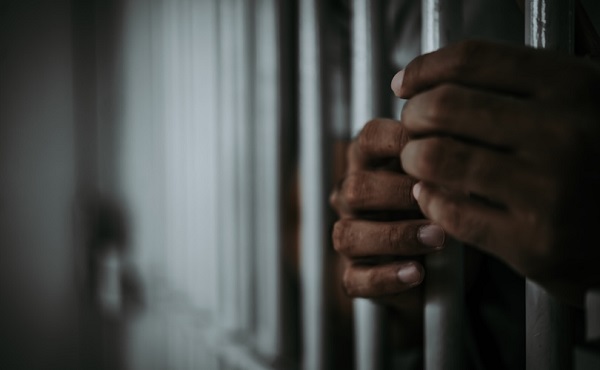
 International24 hours ago
International24 hours agoAustralian territory bans men from women’s prisons in national first
-

 Business2 days ago
Business2 days agoCutting Red Tape Could Help Solve Canada’s Doctor Crisis
-

 COVID-1923 hours ago
COVID-1923 hours agoFreedom Convoy leader Tamara Lich says ‘I am not to leave the house’ while serving sentence
-

 Business13 hours ago
Business13 hours agoFord’s Whisky War
-

 Focal Points12 hours ago
Focal Points12 hours agoTrump Walks Back His Tomahawk Tease from Zelensky
-

 Automotive11 hours ago
Automotive11 hours ago$15 Billion, Zero Assurances: Stellantis Abandons Brampton as Trudeau-Era Green Deal Collapses



